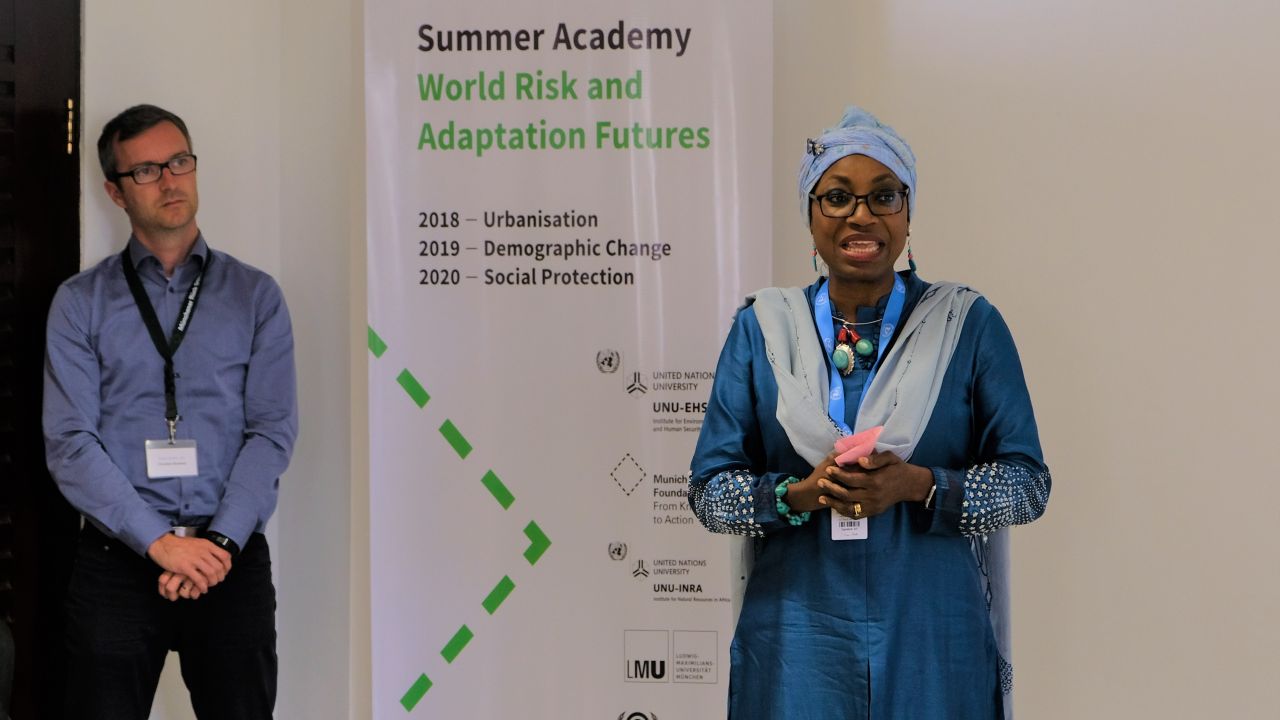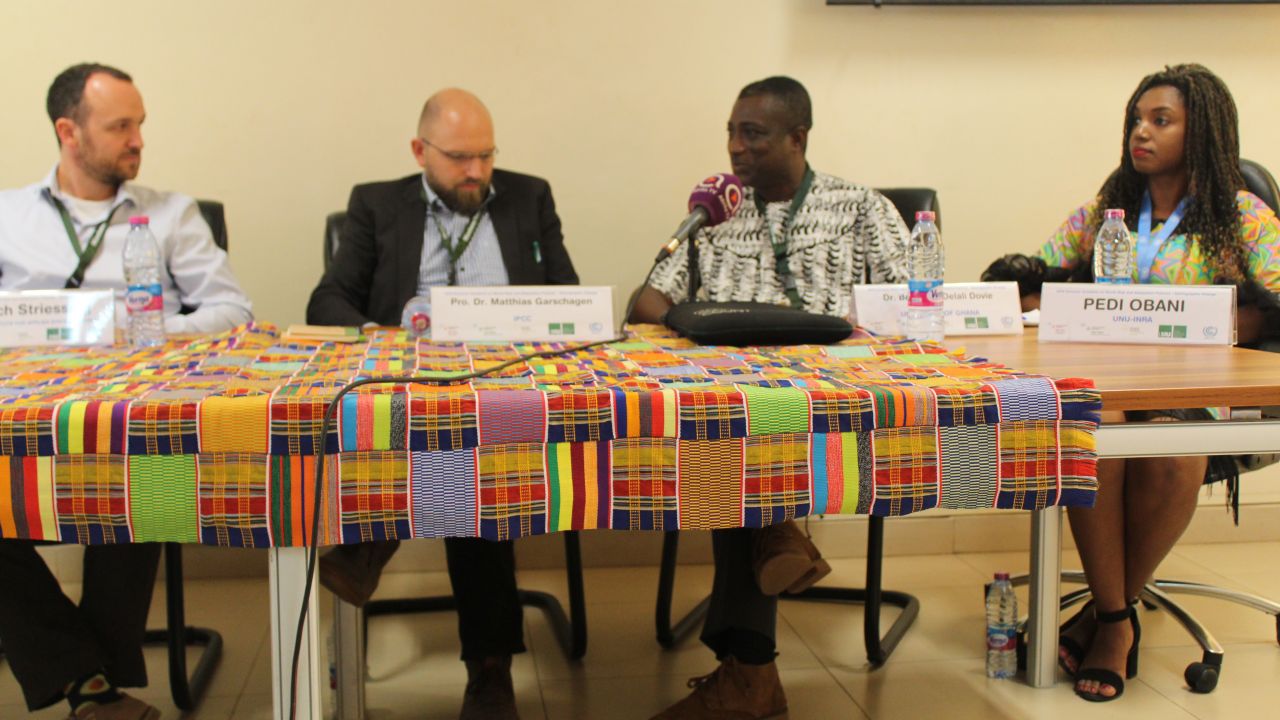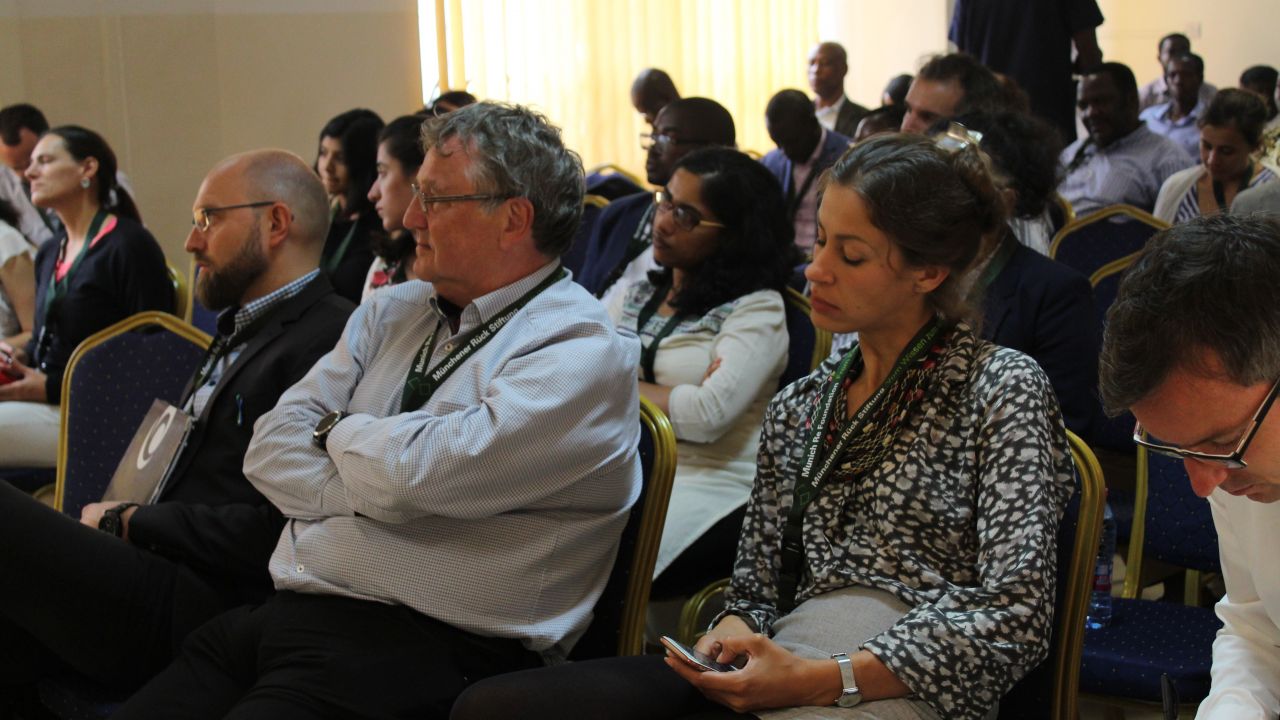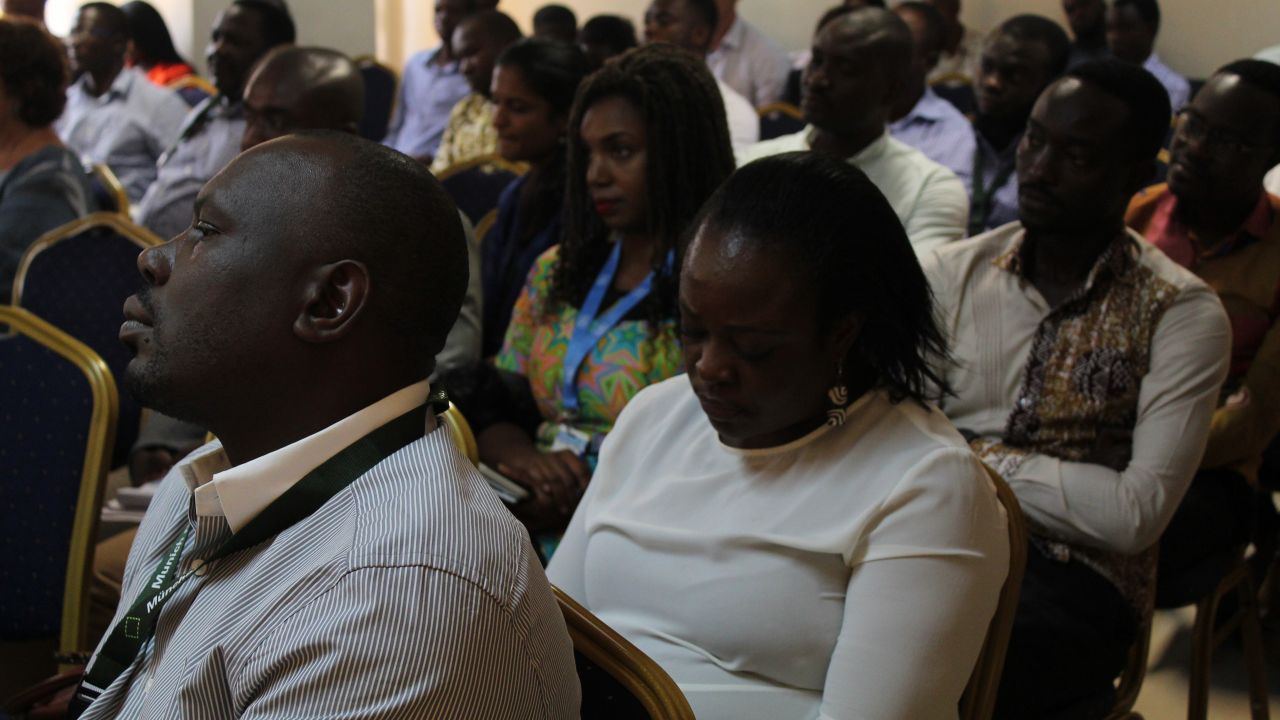The 2019 Summer Academy on Demographic Change and Climate Change
-
October 18, 2019 Accra
The 2019 Summer Academy recently drew to a close on the 11th of October, 2019. The Summer Academy is a collaboration between the United Nations University: Institute of Natural Resources in Africa (UNU-INRA), United Nations University: Institute of Environment and Human Security (UNU-EHS), Munich Re Foundation, Ludwig Maximillian University and the United Nations Framework Convention of Climate Change (UNFCCC).
For five days, 30 participants from around the world met to discuss climate change and demographic change. The presentations from the participants touched a wide range of issues, some of which include climate change adaptation, building resilient cities, digitization, health impacts of pollution, disaster risk management and spatial planning. The programme aimed to take a step further and look at how the research translates to creating and influencing policy on climate change.
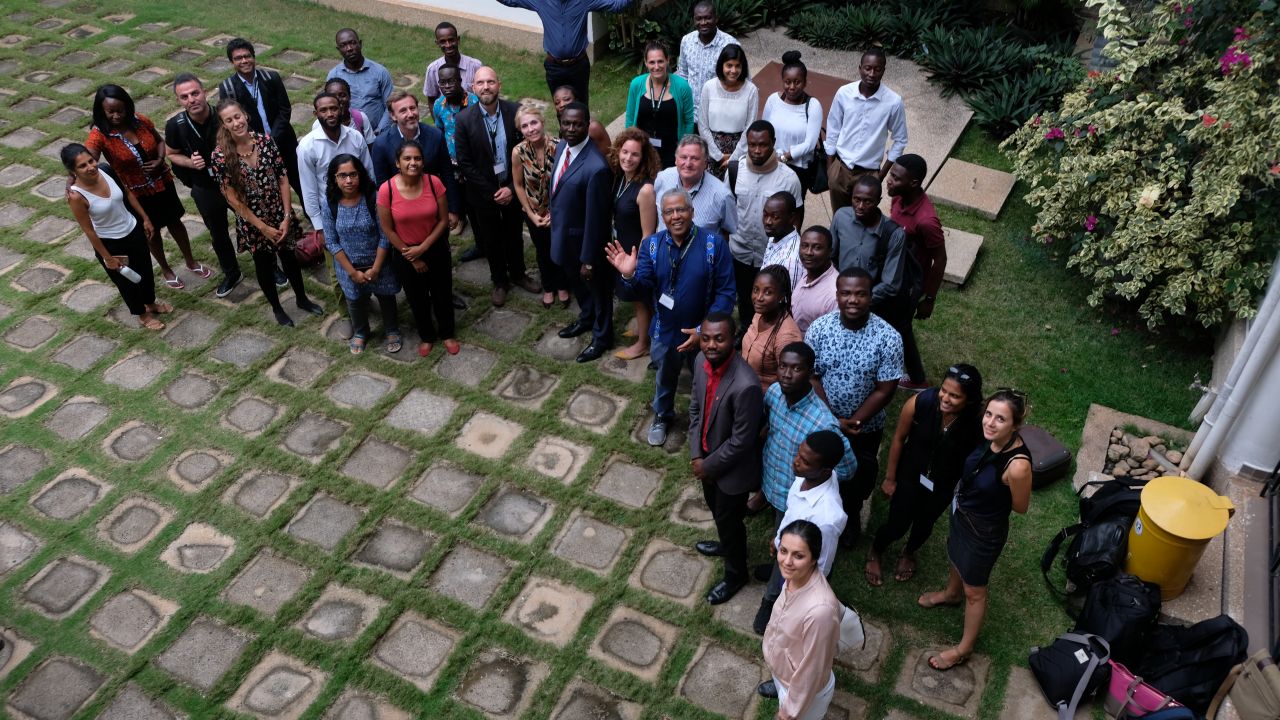 Two rounds of panel discussions were open for public participation, both held at International House at the Legon Campus of the University of Ghana, the location of UNU-INRA headquarters. The opening discussion, focused on the nexus between demographic change and climate change, while the closing panel discussed the policy relevance and the way forward.
Two rounds of panel discussions were open for public participation, both held at International House at the Legon Campus of the University of Ghana, the location of UNU-INRA headquarters. The opening discussion, focused on the nexus between demographic change and climate change, while the closing panel discussed the policy relevance and the way forward.The opening panel discussion featured a Keynote Lecture from Professor Benjamin Delali Dovie of the University of Ghana. In the opening discussion, the professor stated that “free natural resources aren’t free,” and followed by explaining that there is a cost for using these resources.
Pedi Obani, UNU-INRA Research fellow and one of the panellists, added that “cutting down consumption should be context specific,” and explained that adaptation must be inclusive at the social and environmental level.
The closing panel discussions featured a keynote lecture from Hon. Dr. Yaw Osei Adutwum, the Deputy Minister of Education. The Deputy Minister expressed the belief that in order to address policy relevance in the future, there need to be creative solutions to financing development and reshaping the narrative of Africa.
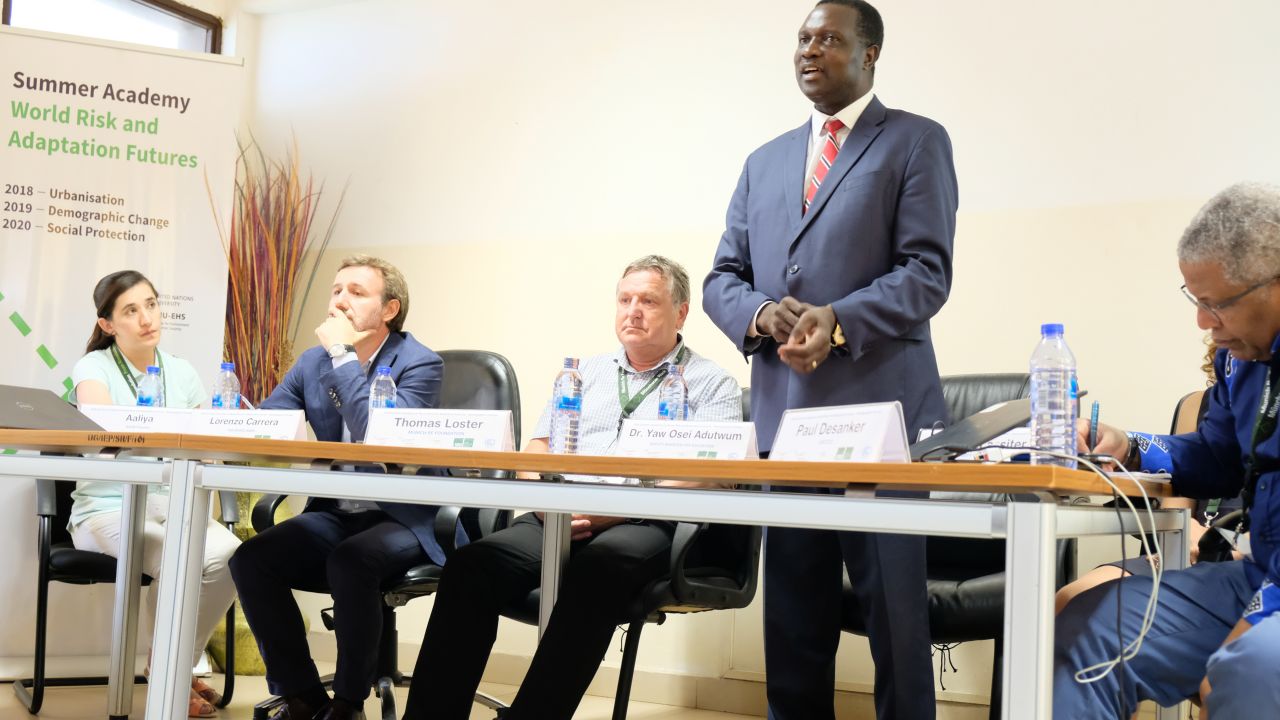 Allison Lassiter, associate professor at the University of Pennsylvania and panellist, raised the point that public health was important to the discussion on sanitation. While fellow panellist and chairman of the Munich Re Foundation, Thomas Loster, echoed the sentiments of the Deputy Minister, saying that the poorest of the poor must engage in disaster education.
Allison Lassiter, associate professor at the University of Pennsylvania and panellist, raised the point that public health was important to the discussion on sanitation. While fellow panellist and chairman of the Munich Re Foundation, Thomas Loster, echoed the sentiments of the Deputy Minister, saying that the poorest of the poor must engage in disaster education.In addition to addressing the topic of demographic change in panel discussions, the participants of the Summer Academy visited Agbogbloshie, a dumping ground for e-waste that is thoroughly polluted. The participants surveyed the surroundings and spoke to the residents in the area about living conditions in the suburb of Accra. While the site displays terrible health and environmental risks, it also presents economic opportunities making it a complex area to study.
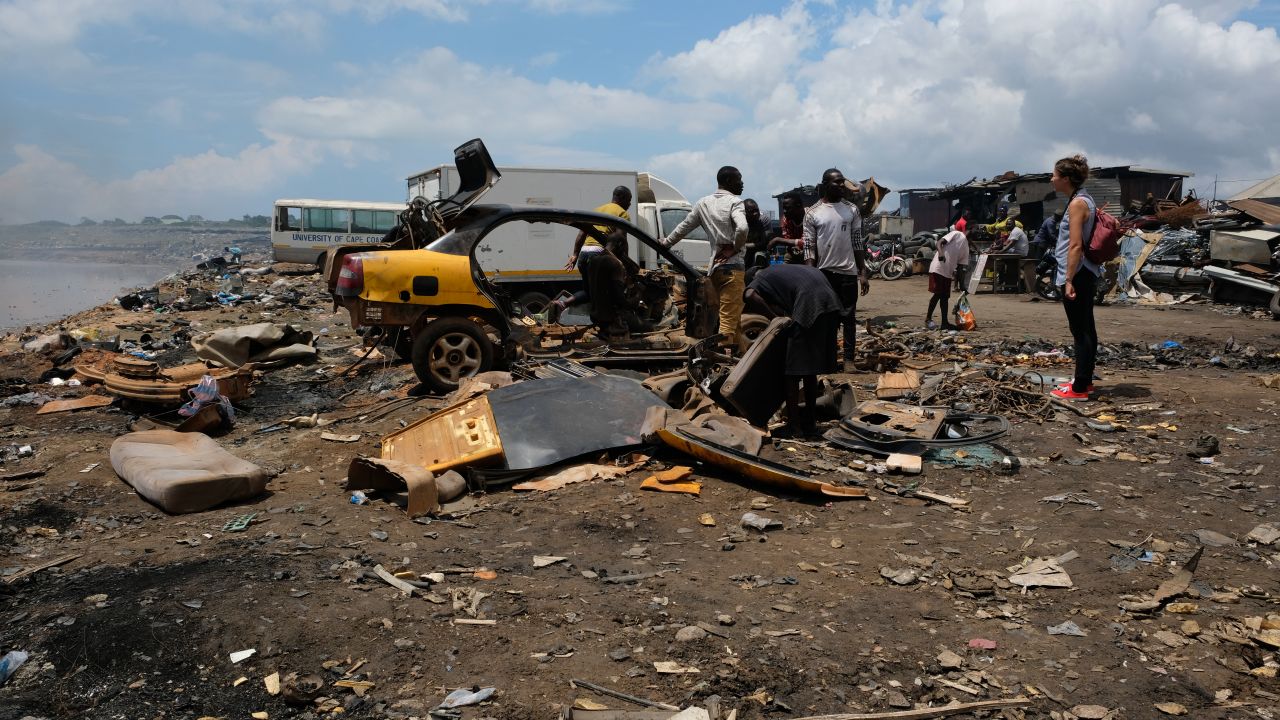 Dr. Fatima Denton, director of UNU-INRA, addressed the participants of the summer academy on the last day of the program to explain how the issues of demographic change and climate action affect the African continent. Dr. Denton noted that Africa does bear the greatest responsibility in cleaning up the mess despite the fact that “Africa hasn’t appropriated a large part of the world’s Carbon budget.”
Dr. Fatima Denton, director of UNU-INRA, addressed the participants of the summer academy on the last day of the program to explain how the issues of demographic change and climate action affect the African continent. Dr. Denton noted that Africa does bear the greatest responsibility in cleaning up the mess despite the fact that “Africa hasn’t appropriated a large part of the world’s Carbon budget.”
